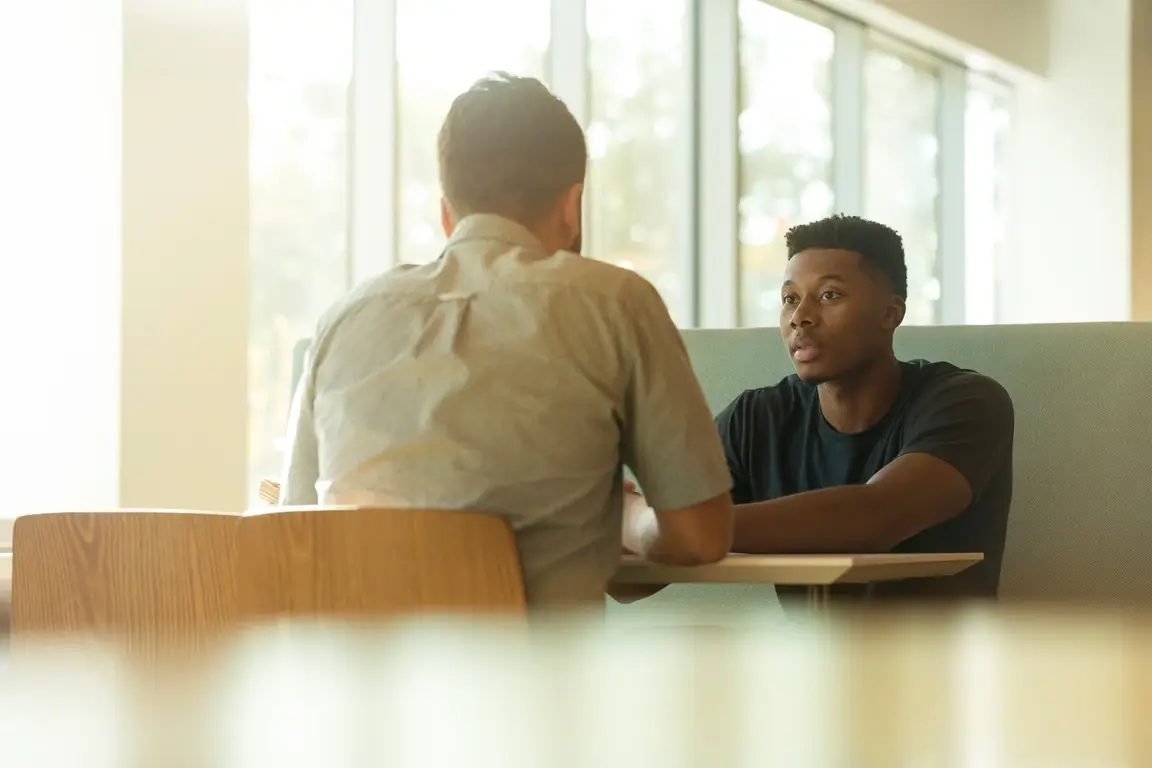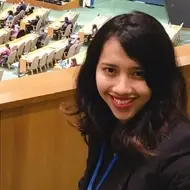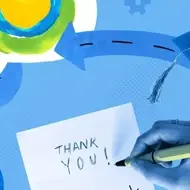Conducting Informational Interviews for Grad School

Interested in learning more about which grad school programs can advance your social-impact career? RSVP for Idealist’s Grad School Fair in NYC on September 30, 2025!
One way to learn about your graduate school and career options is to interview people who are following a similar path.
Simple questions about how they found their careers and what was most helpful to them can yield lots of information as you determine your own next steps. We dig into a few considerations as you set up informational interviews for grad school, as well as some example questions to ask.
Informational Interviews: Best Practices
How to find people to interview
Tap into your network of contacts to help you identify people with whom you should chat. Even if they aren’t the person you ultimately want to interview, they may know someone who would be a perfect interviewee. As you think about your network, make sure to include:
- Undergraduate Career Center (they often compile lists of alumni willing to act as mentors and/or introduce students to their field)
- Colleagues and supervisors
- Peers or mentors in professional associations
- Alumni of your undergraduate institution (they often compile lists of alumni willing to act as mentors and/or introduce students to their field)
- Professors
- Family and friends
Requesting an informational interview
When you first contact the person, it’s important to share a little more about yourself and be clear about what you’d like to speak with them about. As you get ready to reach out to them, here are a few things to make sure you include in your email:
- Who referred you to the potential interviewee (be sure to get permission from your referral to use their name; you may even be able to request that they send an introductory email before you contact the person yourself).
- Why you are asking them for an interview (be sure to include any specific, positive aspects about them or their work that is most of interest to you).
- What kind of information you are seeking (information about the organization, issue area, job function, where they went to grad school, etc.).
- A request for a 30 minute chat, at a time and place of their choosing or by phone if they are not in your area.
Here’s an example of what this might sound like:
Hello. I’m Edgar Hernandez. Kathy Liu suggested I get in touch with you to request an informational interview. I’ve been considering a career in nonprofit finance and am interested in attending graduate school to further my education and qualifications in this area. I received my Bachelor’s Degree in finance at SUNY Binghamton, where I served as president of the campus accounting club and helped a local charity improve their bookkeeping practices. Kathy said that you have 15 years of experience in fundraising and development and that you are highly respected among your peers. I am sure you are busy, but I was wondering if you would have time for a short conversation over coffee, or at your office; my schedule is flexible. I’d love to ask you some questions about how you got started, what your educational background is, and the trajectory of your career so far.
It is possible, though usually unlikely, that the person will turn you down for an interview. They may not have the time or feel that they cannot actually help you. Don’t take it personally; instead, thank them for their time and move forward with your list of potential contacts.
Conducting an informational interview
That said, more than likely, people will be happy to give you a bit of their time. Once you’ve scheduled the informational interview, prepare yourself well. Be sure to so some research on your interviewee, their field and organization.
Additionally, you’ll want to think ahead about questions to ask them. Here are a few examples to help get started:
- How did you get started on this career path?
- Why did you choose this type of work—what drew you to it?
- What particular skills or talents are most essential to be effective in your job and how did you learn these skills?
- What do you wish you had known about this field when you were starting your career?
- Did your own education relate to this field? What programs and/or schools are you aware of that would be good to enter this career?
- What graduate degree(s) would you recommend for someone in this field?
- What preparation would you suggest for someone interested in entering this field? Is there a particular type of fieldwork or practical training that you would recommend?
- Are there any books or publications I can read to learn more about this work?
- Do you have any special advice for someone entering this field?
Use questions you think of in advance as a guide but don’t be afraid to ask follow up questions as they come up naturally. As long as it’s not disruptive to the flow of conversation, it may be helpful to bring along a notebook to help you capture the information they share.
After the interview
Make sure to send a thank-you note or email. Be thoughtful and specific with your appreciation and try to name some specific things you learned from your conversation. Your thank-you note is also a chance to follow up on anything, such as sending your resume for their review or asking about another potential connection they can facilitate.
Be sure to keep in touch with your interviewee about your graduate school journey. They will appreciate your updates and are more likely to help you again in the future if you’ve kept up the effort.
Conduct as many informational interviews for grad school as you can, since they can be very helpful for making decisions about your career path. Listening to a wide range of perspectives can also provide valuable insights about what certain programs are like and how you can prepare for them.
I oversee the content and resources we share at Idealist to help organizations, prospective grad students, and job seekers make an impact in their personal and professional lives. In my spare time, I love to read, cook, and explore NYC's parks.






